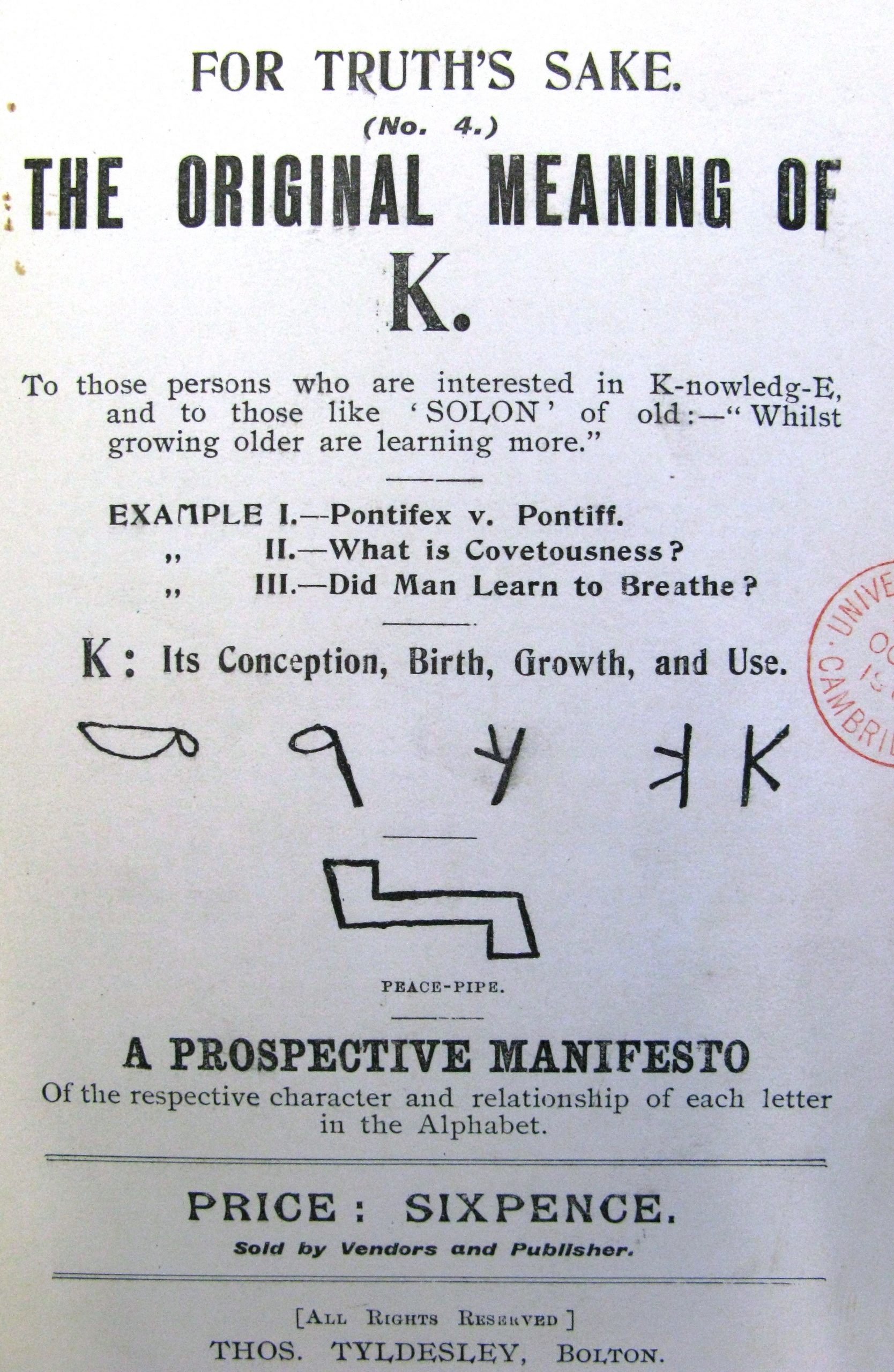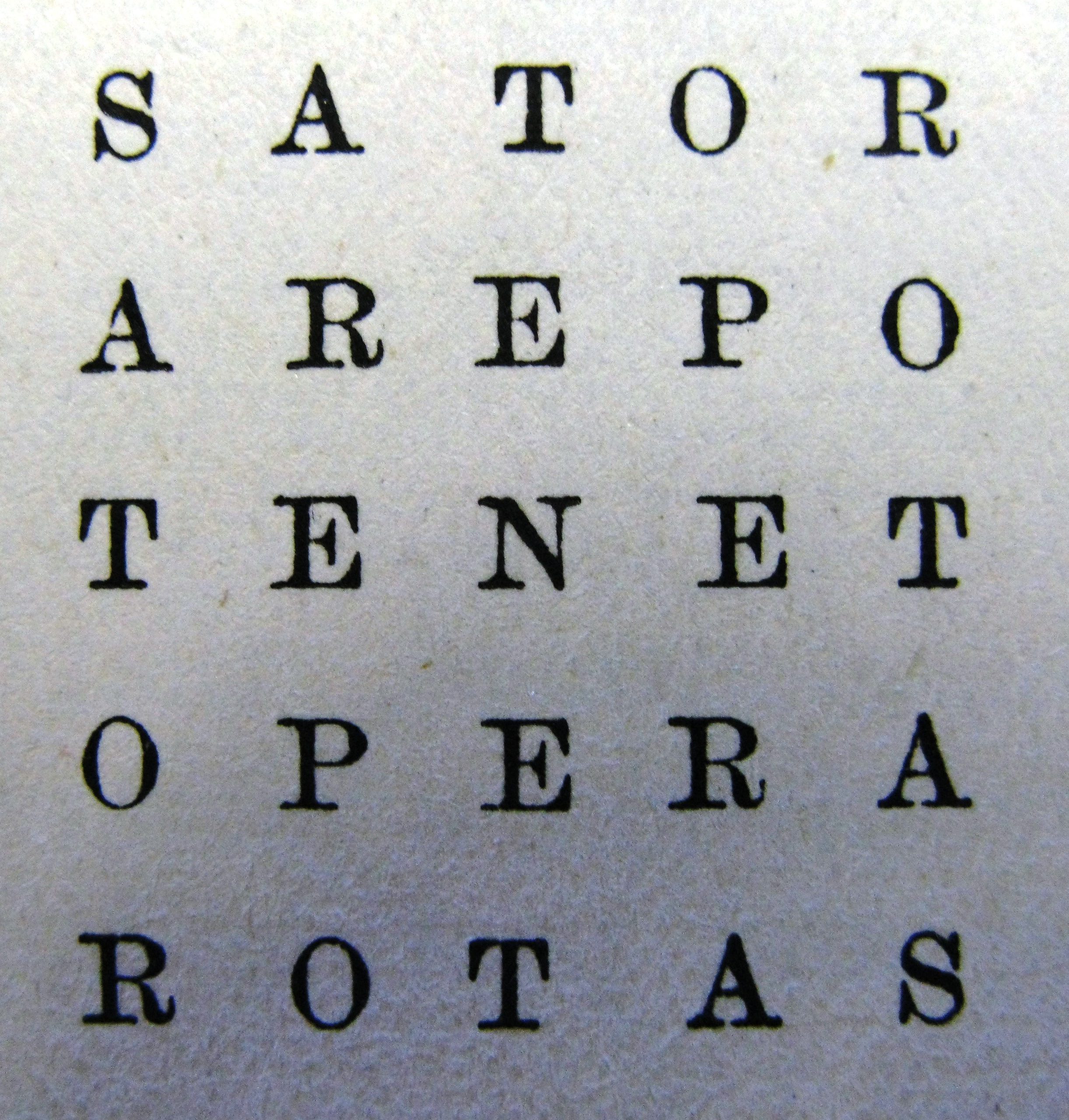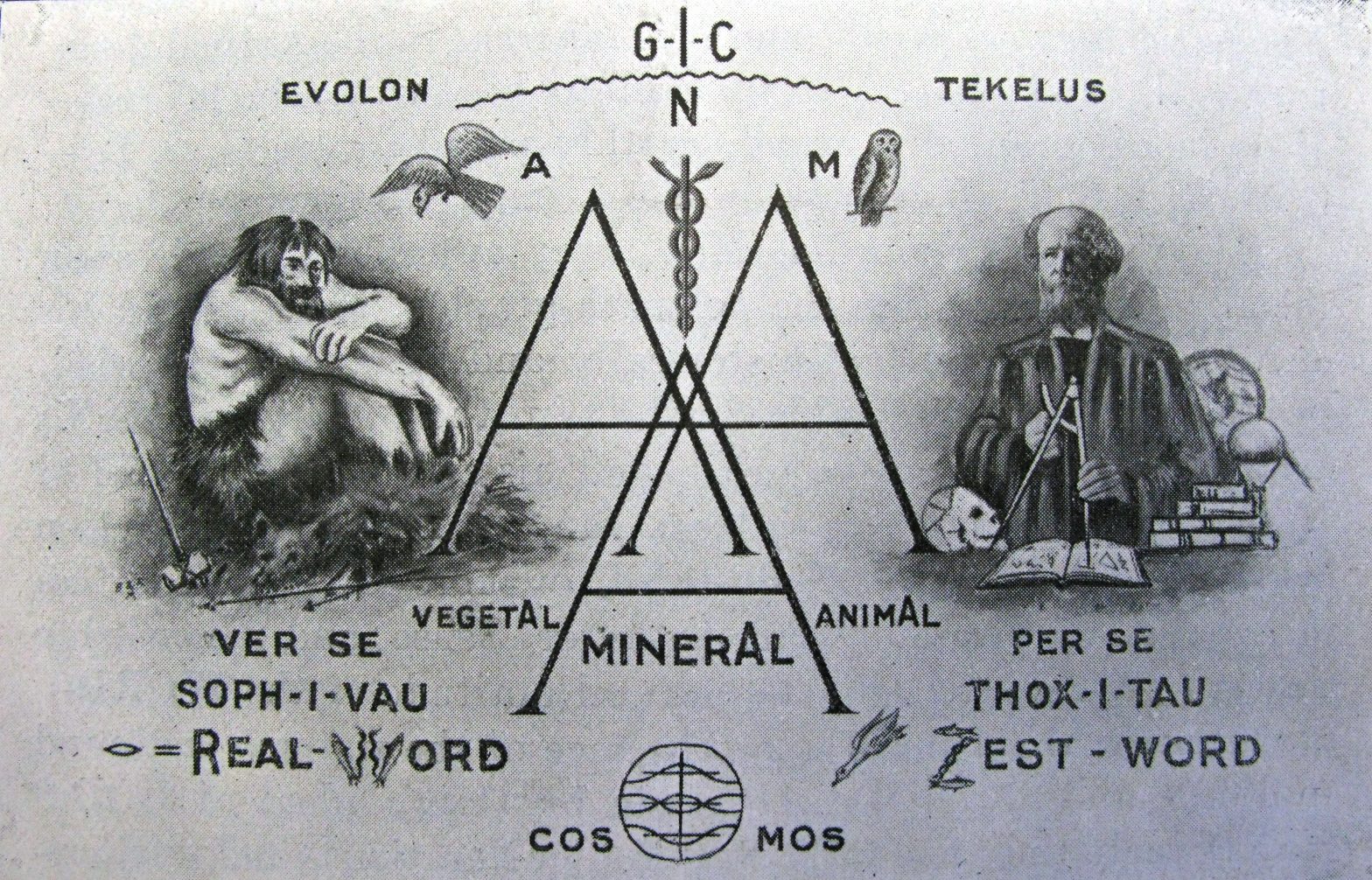I was privileged to work on the Tower Project at Cambridge University Library, cataloguing books, pamphlets, broadsides, fiction, even children’s games, published between 1805 and 1925, held in the seventeen storey library tower.
An enjoyable challenge of the job was to find a suitable subject heading to express what a particular book was about, so that researchers would find it when doing a subject search of our online catalogue. Some books made it easy, others required considerable pondering before that “mot juste” sprang to mind.
When I plucked a pamphlet entitled An exposition of the polypantoglyphograph by Thomas Tyldesley from my trolley, I thought “Hmmm, this is obviously about something of which I know nothing, what an opportunity to learn something new” – well, something along those lines, anyway. Now I pride myself on my grasp of the English language, I consider myself moderately well read, and will tackle pieces of literature that require more than a passing moment’s concentration, but after scanning a few pages of Mr. Tyldesley’s publication I began to feel confused. I flicked through looking for fresh paragraphs to attempt, each time failing to grasp the meaning of the text before me, such as:
M– An eMbleM of coM-Munication by analogy between the OWL(e)’s and Man’s Sense of household habits, and the whole WORLD’S Light by coM-Munion from SOPH-I-VAU with his dog (re dog and GOD, in series 5), and the love of Man through All the dead-men’s skulls to THOX-I-TAU, and the workings of that LeVER and fulcrum …
By the time I’d worked my way through that paragraph I had a headache.
I did a quick search on the author’s name and chased up other publications of his in the hope of clarifying my thoughts. I retrieved a number of pamphlets, all self-published, in a series entitled For truth’s sake.

After failing to grapple with Ex-shæphoenominology, or, The science of letters I started to browse The ressus(c)itation of the revælation and ‘natural’ meanings of letters, which were sought by Plato and his compeers, but got a bit bogged down, to be honest. Determined not to be beaten, I decided to tackle The original meaning of K, but fell at the first hurdle with:
All abstracts of thought have tails, and, like comets, the quicker they move the longer their tails become; and I fear that the majority of all classes of our literati, from the lorey occupant of the professor’s chair to the standard-fixed multitudes in our common schools (the latter being battered by strifeful contending Ismst, and fettered by the circumfused fickle curriculum of a co-deified power, emanating from a consanguineous body of clannish richly-paid officials) are more attracted to the tail (tales and stories) than to the body – substance – nucleus – root – ORI, not pri-ORI.
Now I was beginning to feel decidedly cross. It is hard to explain the sensation of reading something in your own language and not having a clue as to its meaning – vexatious, perhaps? Mr. Tyldesley obviously enjoyed language, and I have managed to glean from his ramblings that he believed the shape of letters to be crucial to their meaning, which explains his predilection for peppering his prose with capital letters and symbols.
And to be fair, I did learn something new. In my ignorance I had never heard of the Sator Square, which is a satisfying palindrome of ancient origin and various interpretations, suitably obscure for Thomas Tyldesley, but a genuine phenomenon in the real world:

Tyldesley’s overarching obsession was a mystical interpretation of the alphabet, upon which he built a complex, and frankly baffling, theory of language, which I am sorry to say I have failed to get to grips with. I’m obviously not alone in my bewilderment, as he frequently complains of having his articles and letters rejected by the various papers to which he sent them, and even quotes a baffled individual to whom he had shown his work: “Put your books in our language, and then we can understand you.” Undeterred, Mr. Tyldesley continued his pursuit of the truth with zeal:
The rejection of newspaper editors to publish my letters on this subject … constrains me to publish this additional paper; although great and severe has been my financial loss up to the present …
He claims to have left school at 6½ “to wind bobbins and learn to weave,” in which case perhaps he belongs to that admirable tradition of the autodidact. It would be interesting to know where he gained access to the information he used in his pamphlets, what, or who, set him on his path of discovery. I got the feeling, as I struggled to interpret his convoluted prose, that his mind was teeming to bursting point with arcane occult concepts, hieroglyphs, symbols and quasi-religious concepts, but however eccentric or bizarre we may think him, Thomas Tyldesley was evidently happy inhabiting his peculiar world view:
The unspeakable joy which I possess is begot of my communion with words true to nature, by inception, conception, and comprehension of her mæanderings and the commingling of forces, within the power of order and design, radiating, refracting, and reflecting each clearer ray of light, by which the knowledge of the celestial and the terrestrial becomes fused into matter, mannas for the mind, through a knowledge of visible form, cosmical movement, and invisible but thinkable shape, the steps to higher planes upon which the sublimity of the mind can solve supernal problems. The reality of this rare and lasting pleasure renders me imperious and impervious to all acrimonious attacks of human ignorance and infelicity, and subdues my loss to the value of dross in the smelting furnace of the soul.
I wish I could say that after grappling with Thomas Tyldesley of Bolton I could agree with Dr. Seuss, who said “I like nonsense; it wakes up the brain cells.” I’m afraid I had to do as the gravedigger in Hamlet advises his baffled companion, who is struggling with a riddle, to do: “Cudgel thy brains no more about it” and assign the best subject headings I could muster, and move on to more mundane, but blessedly comprehensible, works.
The pamphlets referred to may be consulted on request in the Rare Books Room, either through the online catalogue here: https://idiscover.lib.cam.ac.uk/primo-explore/search?vid=44CAM_PROD&lang=en_US
or by completing a paper request slip in person in the Rare Books Room at the University Library. You can search by title, author or classmark, as given below:
An exposition of the polypantoglyphograph … / by Thomas Tyldesley. Classmark 1913.8.768
Ex-shæphœnominology, or, The science of letters … / by Thomas Tyldesley. Classmark 1906.8.920
The resuss(c)itation of the revælation and “natural” meanings of letters, which were sought by Plato and his compeers. Classmark 1906.9.355
The original meaning of K … Classmark 1906.9.352.
